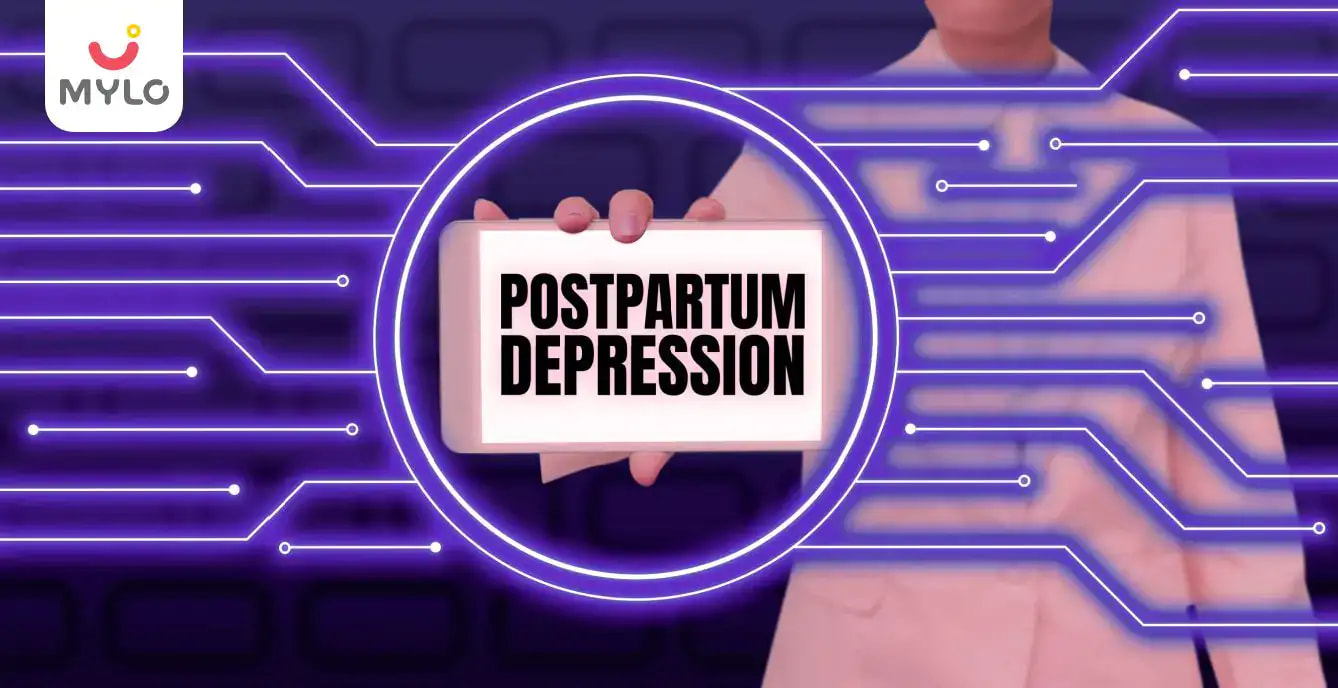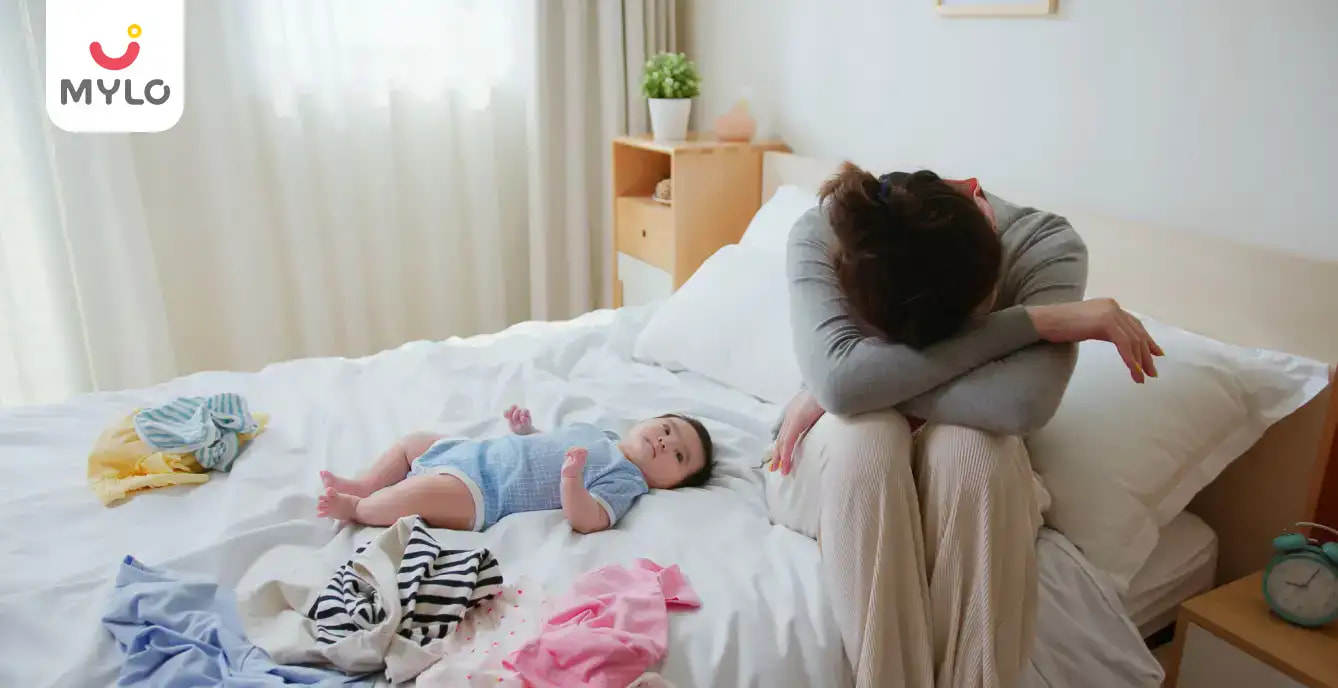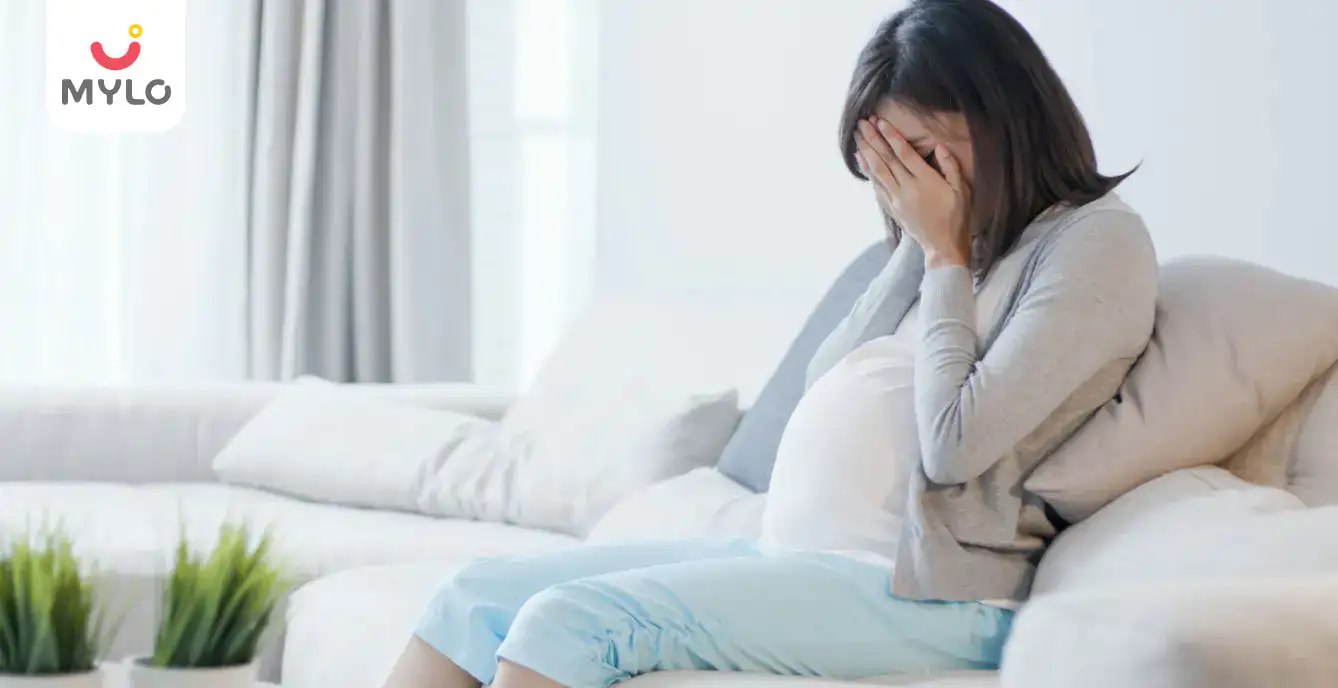Home

Depression in Women Post Delivery

How Long Does Postpartum Depression Last?
In this Article

Depression in Women Post Delivery
How Long Does Postpartum Depression Last?
Updated on 3 November 2023
Pregnancy is a challenging experience for any woman, and its repercussions can be felt by them long after childbirth. Many women experience mood swings, tearfulness and anxiety after childbirth, commonly termed postpartum or postnatal depression. It is a very severe condition; therefore, for women experiencing postpartum depression, the question of How Long Postpartum Depression Last becomes of prime importance.
What is Postpartum Depression?
Postpartum depression, or PPD, is a type of clinical depression that a mother experiences after childbirth. The exact causes of PPD are unknown, and just like any other kind of depression, it can occur for various reasons. During childbirth, a woman faces common causes of clinical depression, such as significant life changes, extreme stress and biological changes in the body. There are, however, some factors that increase the risk of postpartum depression -
-
Pre-pregnancy or post-pregnancy depression
-
Mental illness in the family
-
Stressful pregnancy
-
Lack of love and care from close ones
-
History of bipolar disorder
-
Pre-mature delivery of the baby
-
Usage of alcohol and drugs
What are the symptoms of Postpartum Depression?
Based on the severity of symptoms, one can say someone has postpartum depression how long does it last for them? According to the data from the National Institute of Mental Health, symptoms of postpartum depression are -
-
A feeling of sadness and anxiety
-
Crying untimely
-
A feeling of restlessness and anger
-
Overeating
-
Irregular sleep or facing difficulty in sleeping
-
Headaches and body aches without any apparent reason
-
Refraining from activities that one seems to enjoy earlier, i.e. social isolation
-
Negative thoughts of harming oneself and the baby
-
Constant feelings of guilt and worthlessness
-
Problems faced while focusing on work and in decision making
-
Facing difficulty while taking care of the baby and the family.
-
Hallucinations
-
A visible change in weight
You may like: How To Deal With Postpartum Depression
When does Postpartum Depression typically start?
Postpartum depression, or PPD, starts soon after childbirth, and most women do not even realise it until the end of baby blues. Baby blues is the sudden sadness every woman experiences in the first few weeks of childbirth. This occurs in 4 out of 5 new mothers.
The first four to six weeks of childbirth are postpartum, and during this, one may experience PPD. However, in some cases, PPD can also start during pregnancy or one year after the baby's birth. So if one feels off after their postpartum period ends, that can be a sign of PPD.
How long can Postpartum Depression last?
Postpartum depression is different for every woman, and researchers have found that its symptoms vary from woman to woman. PPD can appear in women between two weeks from birth to 12 months after childbirth.
A study in 2014 indicates that PPD symptoms improve in women over time, and it gets resolved within three to six weeks of appearance. However, some women in this study are experiencing symptoms of PPD even after crossing six months.
Thirty to fifty per cent of women reported that they experienced PPD after one year of childbirth. In contrast, little less than half reported that they experienced depressive symptoms even after three years of postpartum. Thus, one can never say for sure how long postpartum depression last in women.
How can Postpartum Depression affect your life?
Postpartum depression seriously affects a woman’s personal and professional life. A woman can feel isolated, and the American Academy of Pediatrics (AAP) states that when one partner develops PPD, the other is likely to follow. One can also become distant from their family and friends because they would not be acting like themselves. And unfortunately, it can also affect the relationship between mother and child.
When is the right time to visit the doctor?
One should visit a doctor if they experience any signs of sadness and other symptoms of PPD after the baby blues. This is not necessarily bad news and one that one should hide but something they need to get diagnosed with as soon as possible. Moreover, one should never blame themselves for it and accept that it is normal to have PPD after childbirth and seek support for a speedy recovery.
This was all a woman needed to know about postpartum depression or PPD. Remember all these symptoms; when one experiences any of these, they need to consult healthcare professionals soon.
To find help for postpartum depression and care, you can check Mylo Postpartum Care Plan that takes care of the new mother's needs and holistic well-being. It can help you with postpartum depression and recovery, increased breast milk secretion, weight loss, improved gut health and constipation relief.
Know more about postpartum depression (FAQs)
1. Can you get postpartum depression after 2 months?
Ans. Yes, one can experience postpartum depression after 2 months of childbirth.
2. Can you get postpartum depression after 4 months?
Ans. Yes, one can experience postpartum depression after 4 months of childbirth because, due to hormonal changes in women, they can experience delayed postpartum depression.
3. Can postpartum depression last for years?
Yes, studies have indicated that sometimes women can experience a high level of depressive symptoms due to postpartum depression that can last for years after childbirth. For some women, three to six months may not be long enough to gauge depressive symptoms



Written by
Ravish Goyal
Official account of Mylo Editor
Read MoreGet baby's diet chart, and growth tips

Related Articles
Related Questions
Hello frnds..still no pain...doctor said head fix nhi hua hai..bt vagina me pain hai aur back pain bhi... anyone having same issues??

Kon kon c chije aisi hai jo pregnancy mei gas acidity jalan karti hain... Koi btayega plz bcz mujhe aksar khane ke baad hi samagh aata hai ki is chij se gas acidity jalan ho gyi hai. Please share your knowledge

I am 13 week pregnancy. Anyone having Storione-xt tablet. It better to have morning or night ???

Hlo to be moms....i hv a query...in my 9.5 wk i feel body joint pain like in ankle, knee, wrist, shoulder, toes....pain intensity is high...i cnt sleep....what should i do pls help....cn i cosult my doc.

Influenza and boostrix injection kisiko laga hai kya 8 month pregnancy me and q lagta hai ye plz reply me

Related Topics
RECENTLY PUBLISHED ARTICLES
our most recent articles

Diet & Nutrition
গর্ভাবস্থায় আলুবোখরা: উপকারিতা ও ঝুঁকি | Prunes During Pregnancy: Benefits & Risks in Bengali

Diet & Nutrition
গর্ভাবস্থায় হিং | ঝুঁকি, সুবিধা এবং অন্যান্য চিকিৎসা | Hing During Pregnancy | Risks, Benefits & Other Treatments in Bengali

Women Specific Issues
স্তনের উপর সাদা দাগ: লক্ষণ, কারণ এবং চিকিৎসা | White Spots on Nipple: Causes, Symptoms, and Treatments in Bengali

Diet & Nutrition
গর্ভাবস্থায় পোহা: উপকারিতা, ধরণ এবং রেসিপি | Poha During Pregnancy: Benefits, Types & Recipes in Bengali

Diet & Nutrition
গর্ভাবস্থায় মাছ: উপকারিতা এবং ঝুঁকি | Fish In Pregnancy: Benefits and Risks in Bengali

Diet & Nutrition
গর্ভাবস্থায় রেড ওয়াইন: পার্শ্ব প্রতিক্রিয়া এবং নির্দেশিকা | Red Wine During Pregnancy: Side Effects & Guidelines in Bengali
- ইনার থাই চ্যাফিং: কারণ, উপসর্গ এবং চিকিৎসা | Inner Thigh Chafing: Causes, Symptoms & Treatment in Bengali
- গর্ভাবস্থায় ব্রাউন রাইস: উপকারিতা ও সতর্কতা | Brown Rice During Pregnancy: Benefits & Precautions in Bengali
- Velamentous Cord Insertion - Precautions, Results & Safety
- Unlock the Secret to Flawless Skin: 7 Must-Have Qualities in a Face Serum
- Unlock the Secret to Radiant Skin: How Vitamin C Serum Can Transform Your Complexion
- Gender No Bar: 10 Reasons Why Everyone Needs a Body Lotion
- Unlock the Secret to Radiant Skin How to Choose the Perfect Body Lotion for Your Skin Type
- Top 10 Reasons to Apply a Body Lotion After Every Bath
- Communication in Toddlers: Milestones & Activities
- How to Improve Vocabulary for Toddlers?
- A Comprehensive Guide to Understanding Placenta Accreta
- Vulvovaginitis in Toddlers Causes, Symptoms and Treatment
- A Comprehensive Guide to Understanding Cerebral Palsy in Children
- Bitter Taste in Mouth During Pregnancy: Understanding the Causes and Remedies


AWARDS AND RECOGNITION

Mylo wins Forbes D2C Disruptor award

Mylo wins The Economic Times Promising Brands 2022
AS SEEN IN

- Mylo Care: Effective and science-backed personal care and wellness solutions for a joyful you.
- Mylo Baby: Science-backed, gentle and effective personal care & hygiene range for your little one.
- Mylo Community: Trusted and empathetic community of 10mn+ parents and experts.
Product Categories
baby carrier | baby soap | baby wipes | stretch marks cream | baby cream | baby shampoo | baby massage oil | baby hair oil | stretch marks oil | baby body wash | baby powder | baby lotion | diaper rash cream | newborn diapers | teether | baby kajal | baby diapers | cloth diapers |








